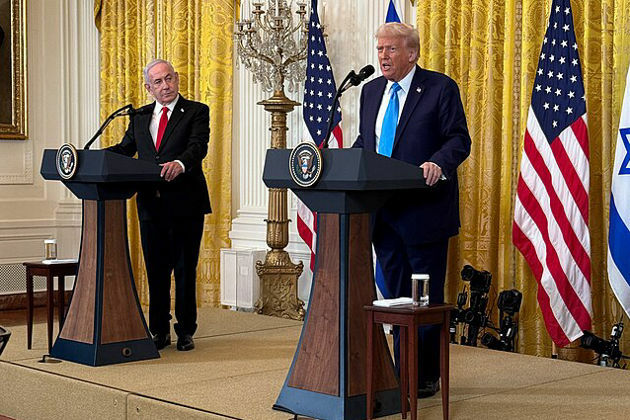How Australia's gig workers may remain contractors under Labor's reforms
The Conversation
05 Jul 2022, 02:08 GMT+10

Uber Australia's historic agreement with the Transport Workers' Union, on the need to regulate the gig economy, is the first step in fundamental reform of gig work. It suggests the direction the Albanese government will to take to deliver better conditions for gig workers.
The "statement of principles" agreed to between Uber and the union supports "regulatory certainty for platforms" and "minimum benefits and standards for platform workers who aren't engaged as employees". It does not agree that gig workers should be classified as employees instead of independent contractors.
Read more: What's driving Uber's historic agreement with the TWU on gig work
The response of federal workplace relations minister Tony Burke to the agreement suggests the government will take the same route - not changing the classification of gig workers but giving the federal industrial relations umpire, the Fair Work Commission, the power to set minimum standards for gig workers in "employee-like work".
A precedent for this approach comes from New South Wales provisions enabling regulation of payments to owner-drivers of trucks. Those provisions have been in place for more than 40 years, and have inspired the proposal before the Queensland parliament to regulate the work of independent courier drivers.
Read more: A new definition of 'worker' could protect many from exploitation
Leaving gig workers as contractors
There are good reasons to aim to regulate gig economy workers as contractors, rather than attempting to bring them under the umbrella of being employees.
Yes, their relationship with platforms can look an awful lot like an employment relationship - hence the reason for court cases supported by the Transport Workers' Union seeking to have gig workers deemed employees.
As the saying goes, if it looks, swims and quacks like a duck, it probably is a duck.
But the outcome of trying to define gig workers as employees has been mixed. Around the world these attempts have sometimes succeeded, sometimes not.
Roadblocks to becoming employees
Platform companies have worked against these attempts, leveraging the fact quite a number of gig workers like to imagine themselves as independent, self-employed people, as well as customers' preference for cheap services.
The best (but not only) example is their success against California's AB5 law, passed in 2019, that tightened the rules for companies to hire workers as independent contractors.
Uber and rival Lyft first threatened to suspend operations in California rather than comply with the law. They then teamed up with other platform companies such as DoorDash and spent a reported US$200 million in 2020 to secure and a win a "ballot proposal" (known as Proposition 22) exempting app-based transportation and delivery companies from the new law.
A Californian court has since found Proposition 22 unconstitutional, but it remains in place pending an appeal.
Even when a rule is devised to interpret the contracts that gig workers sign as employment contracts, gig companies could amend their contracts to get around that.
Read more: Redefining workers in the platform economy: lessons from the Foodora bunfight
But in the end, a company such as Uber will adhere, grudgingly, to most standards that are imposed on it - other than defining its workers as employees. Thus it has accepted training requirements in Quebec (after first threatening to quit the Canadian province), fare regulation in Massachusetts and driver accreditation requirements in several jurisdictions.
Regulating contractors as contractors
Regulating gig work without redefining gig workers as employees is not just politically easier, and hence more sustainable. It is can also more effective policy.
It enables regulation to be tailored to circumstances. For example it may mean applying an hourly wage rate in one sector, and a piece rate of some sort in another.
For example, a New York state inquiry into how to regulate passenger transport came up with an amount expressed like taxi charges - that is, dollars per kilometre travelled - drivers needed to be paid to earn the equivalent of the state's minimum wage (taking into account waiting times, average speeds and so on).
Different panels of the Fair Work Commission could determine different forms of gig economy regulation for different industries.
Legislation does not need to specify how regulation should be expressed. It just needs to make sure that the Commission has all the power it needs, to regulate in whatever way it sees fit.
Levelling the playing field
The Transport Workers' Union - which has a number of former officials in the Albanese government - has a long history of successfully promoting regulation of safety conditions for independent contractors (such as truck owner-drivers) without rebadging workers as employees.
In the 1970s, for example, it persuaded the Wran government in NSW to introduce amendments to the NSW Industrial Relations Act that have made roads safer.
The Albanese government does not need to legislate specific regulation. It just needs give the Fair Work Commission the power it needs to regulate in whatever way it sees fit, setting a minimum hourly rate or something else.
The law must also direct the commission to set minimum standards in a way that ensures gig workers are paid as much as comparable award-covered employees, taking account of expenses. (Contractors often pay for costs that, if they were employees, would be covered by their employer.) This sort of direction is important to ensure neutrality between the costs of using employees or contractors.
Author: David Peetz - Professor Emeritus, Griffith Business School, Griffith University 
 Share
Share
 Tweet
Tweet
 Share
Share
 Flip
Flip
 Email
Email
Watch latest videos
Subscribe and Follow
Get a daily dose of Northern Ireland News news through our daily email, its complimentary and keeps you fully up to date with world and business news as well.
News RELEASES
Publish news of your business, community or sports group, personnel appointments, major event and more by submitting a news release to Northern Ireland News.
More InformationBusiness
SectionEngine defect prompts Nissan to recall over 443,000 vehicles
FRANKLIN, Tennessee: Hundreds of thousands of Nissan and Infiniti vehicles are being recalled across the United States due to a potential...
Microsoft trims jobs to manage soaring AI infrastructure costs
REDMOND, Washington: Microsoft is the latest tech giant to announce significant job cuts, as the financial strain of building next-generation...
Stocks worldwide struggle to make ground Friday with Wall Street closed
LONDON UK - U.S. stock markets were closed on Friday for Independence Day. Global Forex Markets Wrap Up Friday with Greeback Comeback...
Nvidia briefly tops Apple’s record in AI-fueled stock rally
SANTA CLARA, California: Nvidia came within a whisker of making financial history on July 3, briefly surpassing Apple's all-time market...
ICE raids leave crops rotting in California, farmers fear collapse
SACRAMENTO, California: California's multibillion-dollar farms are facing a growing crisis—not from drought or pests, but from a sudden...
Trump signals progress on India Trade, criticizes Japan stance
WASHINGTON, D.C.: President Donald Trump says the United States could soon reach a trade deal with India. He believes this deal would...
International
SectionTragedy in Spain: Diogo Jota and his brother die in car accident
MADRID, Spain: Liverpool footballer Diogo Jota and his younger brother, André Silva, have died in a car accident in Spain. Spanish...
Early heatwave grips Europe, leaving 8 dead and nations on alert
LONDON, U.K.: An unrelenting heatwave sweeping across Europe has pushed early summer temperatures to historic highs, triggering deadly...
U.S. military, China, Russia in Space race
President Donald Trump's plans to build a space-based Golden Dome missile defense shield have drawn immediate criticism from China,...
Trump wins $16 million settlement from Paramount over CBS Harris edit
NEW YORK CITY, New York: Paramount has agreed to pay US$16 million to settle a lawsuit brought by U.S. President Donald Trump over...
British PM faces major party revolt over welfare reforms
LONDON, U.K.: British Prime Minister Keir Starmer won a vote in Parliament this week to move ahead with changes to the country's welfare...
White House meeting between Trump, Netanyahu on July 7
WASHINGTON, D.C.: President Donald Trump will meet Israeli Prime Minister Benjamin Netanyahu at the White House on Monday. President...













